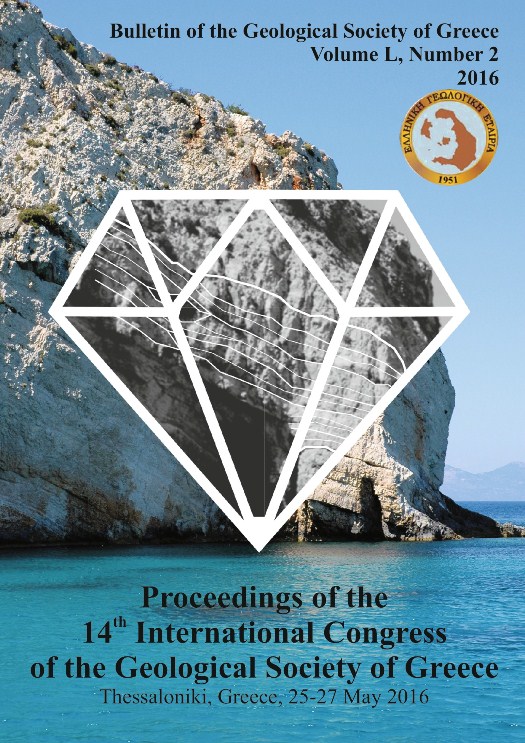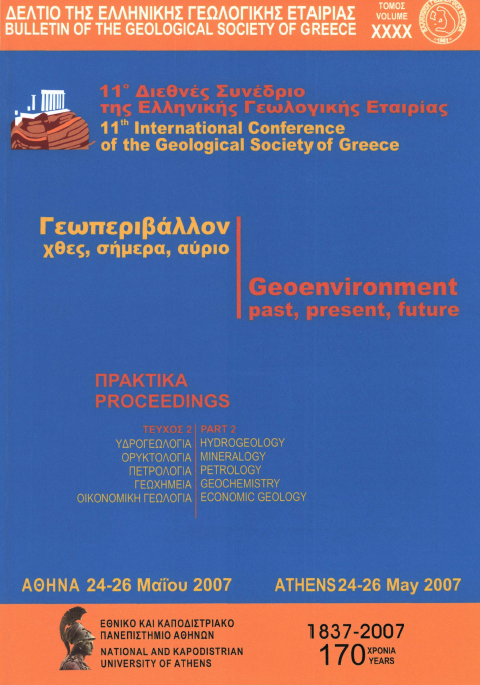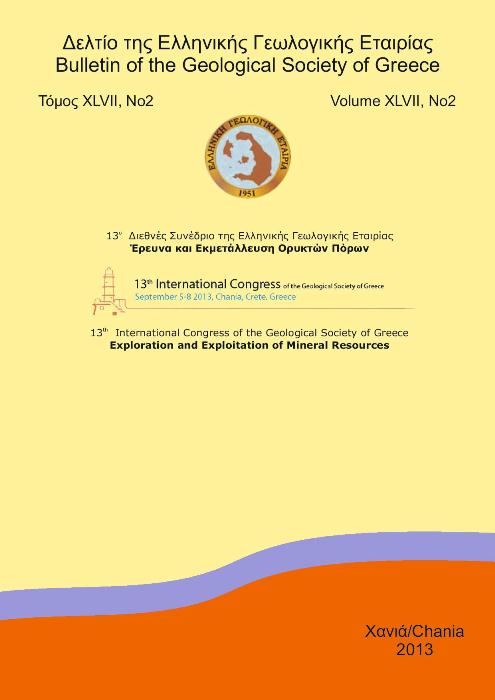HYDROGEOCHEMISTRY FOR THE ASSESSMENT OF GROUNDWATER QUALITY OF SPRINGS ON ANDROS: AN ISLAND OF THE CYCLADES COMPLEX, GREECE

Abstract
The paper presents the results of the physicochemical parameters of the springs of Andros which were studied to evaluate the chemistry of the major ions and solute acquisition processes, which control the chemical composition and the suitability of the quality of water for drinking use. Forty two samples were taken for physicochemical analysis almost at the end of the summer period, in September 2014. The Piper plot was used for the hydrogeochemical classification of groundwater which also indicated that the majority of groundwater samples belong to the Ca-Na-HCO3-Cl type. According to the Durov plot the majority of samples, can be positioned in field 2 in which a process of cation exchange is in progress. Also, the HCO3 /(HCO3 +SO4) ratio indicates a weathering process from carbonic acid. In general, the majority of samples can be characterized as potable.
Article Details
- How to Cite
-
Filippidis, F., Stamatis, G., & Mantaloufa, I. (2016). HYDROGEOCHEMISTRY FOR THE ASSESSMENT OF GROUNDWATER QUALITY OF SPRINGS ON ANDROS: AN ISLAND OF THE CYCLADES COMPLEX, GREECE. Bulletin of the Geological Society of Greece, 50(2), 691–700. https://doi.org/10.12681/bgsg.11775
- Section
- Engineering Geology, Hydrogeology, Urban Geology

This work is licensed under a Creative Commons Attribution-NonCommercial 4.0 International License.
Authors who publish with this journal agree to the following terms:
Authors retain copyright and grant the journal right of first publication with the work simultaneously licensed under a Creative Commons Attribution Non-Commercial License that allows others to share the work with an acknowledgement of the work's authorship and initial publication in this journal.
Authors are able to enter into separate, additional contractual arrangements for the non-exclusive distribution of the journal's published version of the work (e.g. post it to an institutional repository or publish it in a book), with an acknowledgement of its initial publication in this journal. Authors are permitted and encouraged to post their work online (preferably in institutional repositories or on their website) prior to and during the submission process, as it can lead to productive exchanges, as well as earlier and greater citation of published work.





